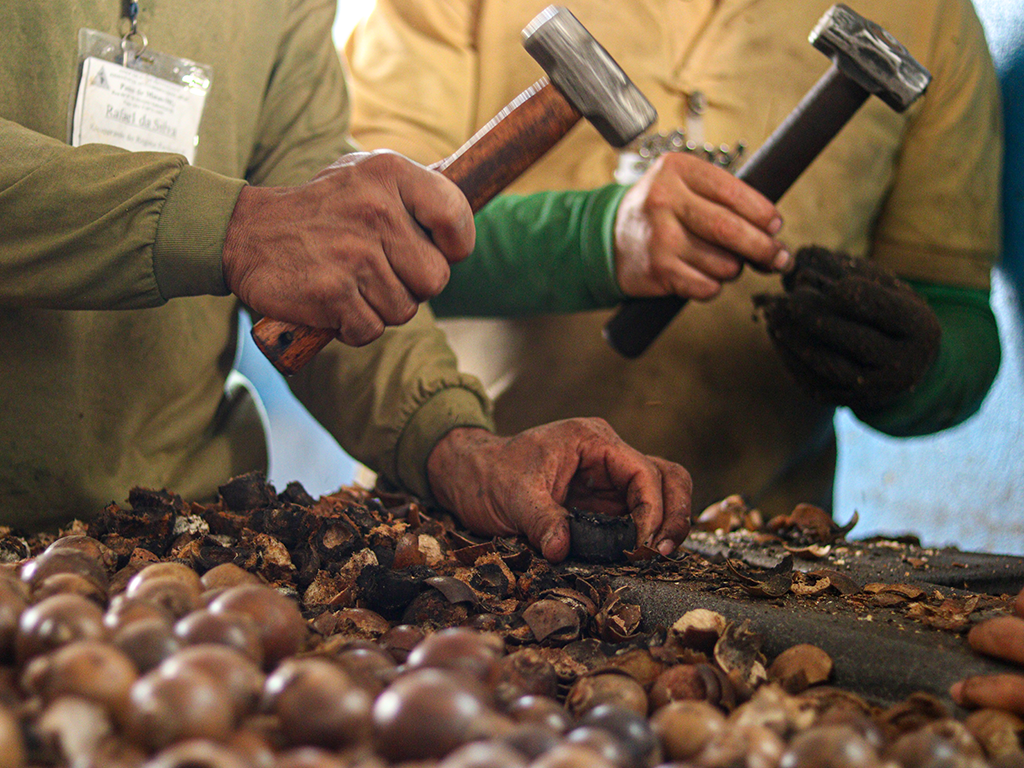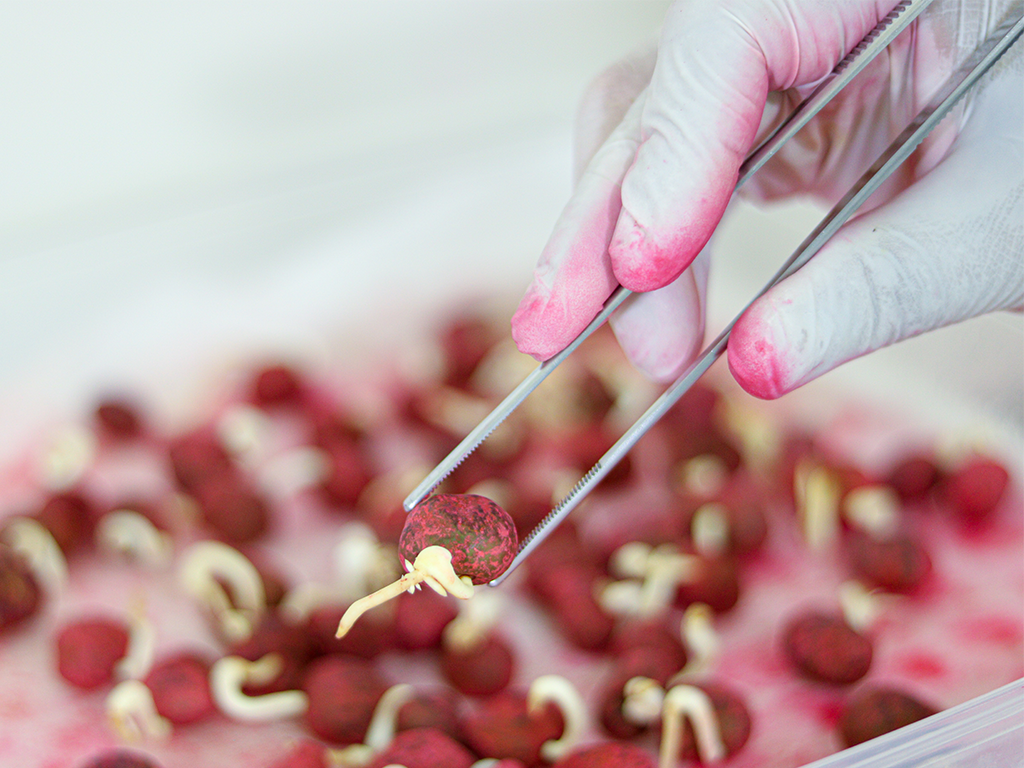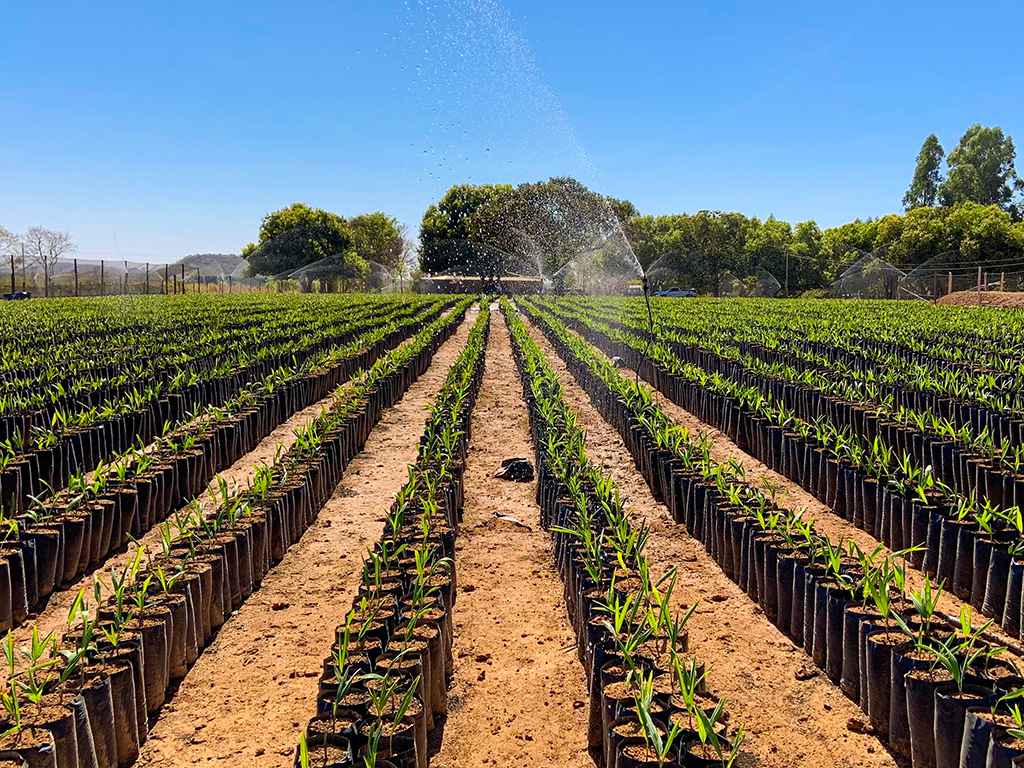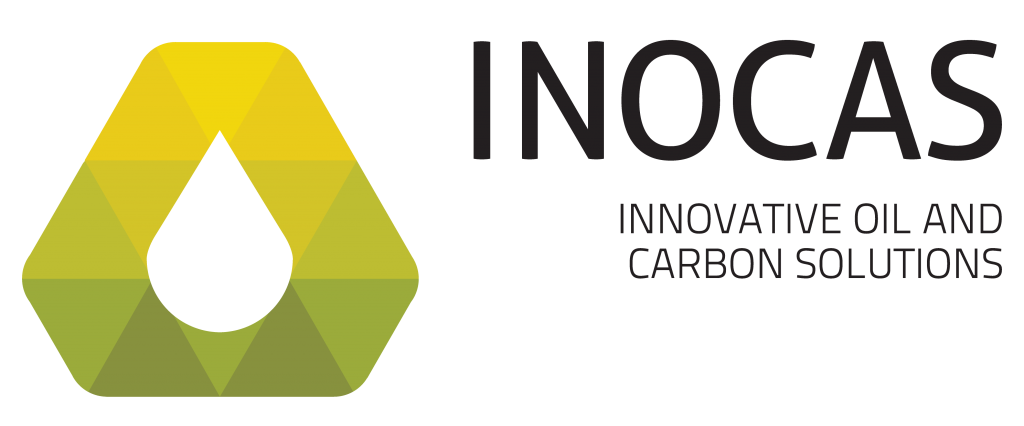SEEDLING PRODUCTION
FROM THE COLLECTION OF SELECTED FRUITS TO THE SEEDLINGER NURSERY

Seed extraction (APAC):
After collecting the macaúba coconut, the fruits are sent to APAC in Patos de Minas, a partner institution of INOCAS where people imprisoned by the justice system serve their sentences in a dignified manner and with a view to resocialization, with work being one of the pillars of the method . The inmates, as APAC prisoners are called, are hired to carry out the first stage of seedling production, the extraction of seeds. This activity is carried out manually through a meticulous process, which maintains the integrity of the almond. The quality control established at this stage, where the visually unviable seeds are discarded, is directly linked to the success of the germination rate in the INOCAS laboratory, where they are subsequently sent. The inmates receive a monthly remuneration for their work, as provided for in the Penal Execution Law and for every 3 days worked there is 1 day of reduced sentence.

Seed germination:
The seeds extracted from the fruits arrive from APAC to the INOCAS laboratory where they are cleaned, selected and treated to avoid the incidence of pathogens. In nature, the macaúba germination rate is slow and has low efficiency, reaching values around 5%. However, based on the germination protocol we used, patented by the Federal University of Viçosa and licensed by INOCAS, we were able to accelerate embryo development and reach rates close to 70%. The seed scarification process consists of removing the operculum, a structure that covers the embryo and acts as a physical barrier, which ensures seed dormancy. With the removal of the operculum and the drop in levels of the inhibitor hormone, we were able to produce seedlings on a commercial scale much faster.

Seedling nursery:
After the germination process, the seeds develop in our laboratory for approximately 40 days at a controlled temperature and go to the greenhouse stage, where they are planted in biodegradable tubes. In addition to our structure, we have partner nurseries in São Paulo, Minas Gerais and Pará. The seedlings remain under greenhouse conditions for three months, and are then transplanted into bags in full sun. At this stage, fertirrigation is intensified and the seedlings remain in the nursery for 7 to 10 months until they reach the ideal size for planting in the field.
